2022 Symposium: New Patterns of Trade Integration
The drivers of international trade policy are shifting. Geopolitics, a retreat from multilateralism, and the intersection of trade with other policy areas have all combined to erode the traditional assumptions underlying trade policy. What will take their place? We tapped experts from near and far to find out.
This program was made possible by the generous support of the CME Group Foundation.
Conference Center, Nebraska Innovation Campus
2021 Transformation Dr, Lincoln, NE 68508
Parking is available in the lot north of the conference center for a fee using the Passport Parking app (Zone 9900). To learn more about parking and using the Passport Parking app, click here. Note: if you have attended events at NIC in the past, this is a new policy.
Agenda (all times CT)
8:30 am
Registration
Coffee and pastries provided
9:00 am
Welcome
Jill O’Donnell, Haggart-Work Director, Yeutter Institute
9:05 am
U.S. Leadership and the World Trade Organization
Andrea Durkin, Assistant U.S. Trade Representative, WTO and Multilateral Affairs
9:40 am
North American Integration and the State of Trade
David Gantz, Will Clayton Fellow, Baker Institute, Rice University; Professor of Law Emeritus, University of Arizona
Eric Miller, President, Rideau Potomac Strategy Group
Kenneth Smith Ramos, Partner, AGON; Mexico’s Former Chief Negotiator for the U.S. Mexico Canada Agreement
Moderator: Ken Levinson, Executive Director, Washington International Trade Association
10:30 am
Break
10:45 am
What does the War in Ukraine Mean for Agriculture Markets and Global Food Security?
Dalton Henry, Vice President of Trade Policy, U.S. Wheat Associates
Jason Grant, W.G. Wysor Professor of Agriculture and Director of the Center for Agricultural Trade, Virginia Tech
Yacob Zereyesus, Senior Economist, USDA Economic Research Service
Moderator: Katrin Kuhlmann, Visiting Professor of Law, Faculty Co-Director, Center on Inclusive Trade and Development, Georgetown University Law Center
11:35 am
Lunch
12:00 pm
Understanding the Asia-Pacific: Geopolitics, Trade, and Investment
Ellen Frost, Senior Advisor and Fellow, East-West Center
Christine McDaniel, Senior Research Fellow, Mercatus Center, George Mason University; Non-Resident Fellow, Yeutter Institute
Wendong Zhang, Assistant Professor, Dyson School of Applied Economics and Management, Cornell University
Moderator: Jill O’Donnell, Haggart-Work Director, Yeutter Institute
12:50 pm
Consensus and Accommodation: Where are the New Fault Lines in International Trade?
Edward Alden, Ross Distinguished Professor, Western Washington University; Senior Fellow, Council on Foreign Relations
1:30 pm
Closing
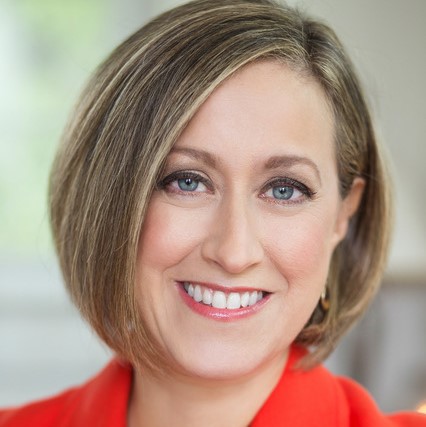
Andrea Durkin
Durkin is Assistant U.S. Trade Representative for WTO and Multilateral Affairs (WAMA), Ms. Durkin is responsible for trade negotiations and U.S. policy coordination regarding matters before the WTO including the operation of various WTO committees related to subsidies, technical barriers to trade, customs/trade facilitation and other subject areas. As head of WAMA, Ms. Durkin also leads the development of U.S. trade positions in the Organization for Economic Co-operation and Development (OECD) and other international organizations and intergovernmental forums such as G7 and G20, in coordination with relevant offices in USTR and other U.S. agencies.
Ms. Durkin returns to USTR after nearly two decades in the private sector as an entrepreneur, author and corporate government relations executive. She has served as a non-resident senior fellow and advisor to leading think tanks in Washington, Dallas and Chicago on trade policy, economic growth, and food and agricultural trade. Ms. Durkin proudly taught hundreds of students International Trade and Investment Policy for seventeen years as an Adjunct Professor at Georgetown University’s Master of Science in Foreign Service program and served as president of the Women in International Trade association.
Over the span of a decade of previous government service with USTR and the International Trade Administration of the U.S. Department of Commerce, Ms. Durkin led a variety of negotiations that included free trade agreements in the Western Hemisphere, the trade-related aspects of United Nations multilateral environment and public health agreements, and sectoral initiatives in APEC.
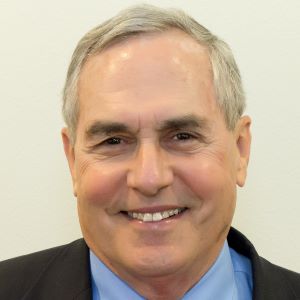
David Gantz
Gantz is a graduate of Harvard College and Stanford Law School. He is the Will Clayton Fellow for Trade and International Economics at the Baker Institute, Center for the United States and Mexico at Rice University, and the Samuel M. Fegtly Professor of Law Emeritus at the University of Arizona. David teaches, writes and lectures in the areas of international trade and investment law, regional trade agreements, international business transactions, public international law and international environmental law. He served earlier in the Office of the Legal Adviser, U.S. Department of State and practiced law in Washington, D.C. His latest books are An Introduction to the United States-Mexico-Canada Agreement: Understanding the New NAFTA and The Comprehensive and Progressive Transpacific Partnership (with Jorge Huerta-Goldman).
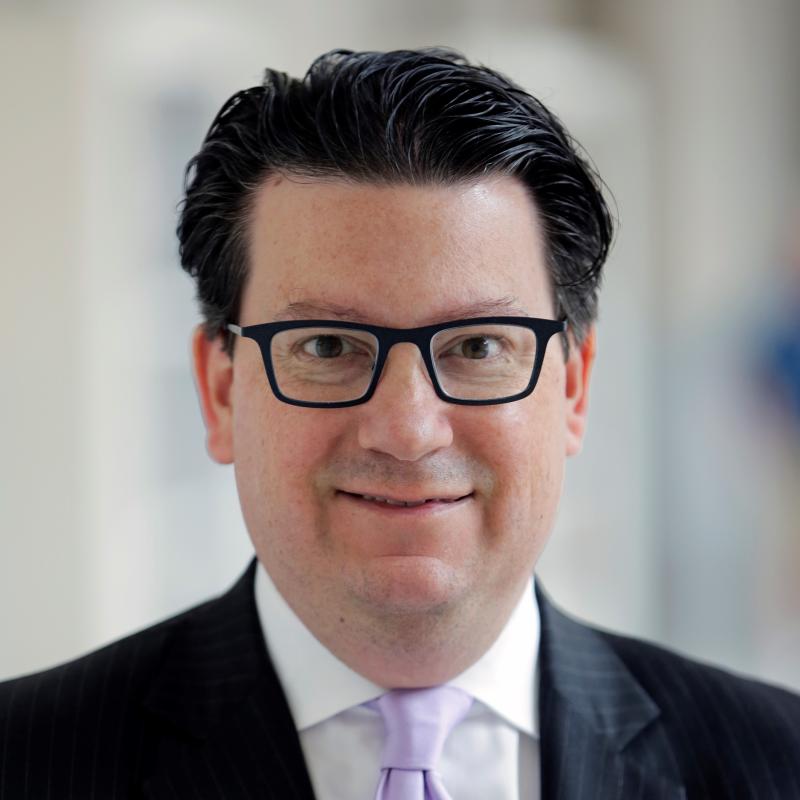
Eric Miller
Miller is President of Rideau Potomac Strategy Group, a consultancy that advises public and private sector clients on North America, Asia, Latin America, and Europe trade, regulatory, business, technology, and geo-political matters. From 2013-2016, Mr. Miller served as Vice President for North America and Cybersecurity at the Business Council of Canada, which represents the CEOs of the 150 largest companies in the country. From 2008-2013, he was the first representative of Canada’s Department of Industry in the United States. Earlier in his career he spent 8 years with the Integration and Trade Division of the Inter-American Development Bank. Mr. Miller has extensive international experience, having advised more than 40 governments in worldwide on trade, logistics, technology, and economic policies. Over the course of his career, he has worked on the development and implementation of six free trade agreements. He is a Global Fellow at the Woodrow Wilson Center in Washington, a Fellow with the Canadian Global Affairs Institute, and a frequent media commentator.
Kenneth Smith Ramos
Smith Ramos is a Partner at AGON, a Mexican Consulting firm that specializes in competition, regulatory affairs, and international trade. Ken focuses on helping international clients to identify trade and investment opportunities derived from the new generation of FTAs that Mexico has negotiated, such as CPTPP, the MX-EU FTA, and the NAFTA/USMCA. Ken also advises clients who face trade barriers and assists them in developing strategies to obtain or expand access into key international markets, including Mexico. Prior to joining AGON, Ken served as Mexico´s Chief Negotiator for the modernization of the North American Free Trade Agreement (NAFTA) that led to the signing of the USMCA. Mr. Smith Ramos brings a wealth of experience with his long-standing career in the Mexican Government and expertise in international trade negotiations. Ken´s broad negotiation experience is the product of nearly three decades of public service, where he held key leadership positions in Mexico´s Ministry of Economy, Ministry of Agriculture, and the Federal Competition Commission. Mr. Smith Ramos began his professional career working for Mexico’s NAFTA negotiating team. Ken holds a Bachelor’s degree in International Affairs from Georgetown University, and a Master’s degree in International Economics from Johns Hopkins, School of Advanced International Studies (SAIS).
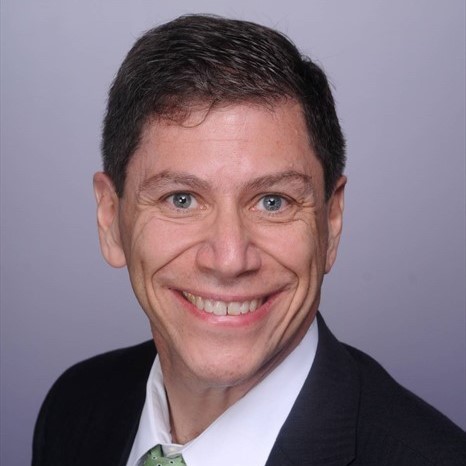
Ken Levinson
Levinson serves as the Executive Director of the Washington International Trade Association (WITA). WITA is the world’s largest non-profit, non-partisan membership organization dedicated to providing a neutral forum for the open and robust discussion of international trade policy and economic issues. Ken has over 30 years of experience working with companies, associations, NGOs and governments, advocating innovative solutions to complex public policy challenges. Over the years, Ken has worked with clients in the technology, telecommunications, biopharmaceuticals, agriculture and food, financial services, retail, apparel, energy, and consumer products sectors. Early in his career, Ken advised U.S. Senator John D. (Jay) Rockefeller IV on foreign policy and national security matters and served as the Senator’s chief advisor on the U.S. Senate Finance Committee, dealing with issues related to international trade and tax policy.

Dalton Henry
Henry is the U.S. Wheat Associates Vice President of Trade Policy. Henry coordinates the efforts of the USW policy team to maintain and improve market access for U.S. wheat exports. Policy priorities include advocacy for new agreements, resolution of trade irritants, ensuring compliance with past commitments and developing strategies for the acceptance and adoption of technology in wheat production. Previously, Henry worked as the director of governmental affairs for Kansas Wheat and as the legislative director for Congressman Roger Marshall. A native of Randolph, KS, Henry earned a bachelor’s degree in agricultural communications from Kansas State University. He lives in Washington, DC while maintaining close ties with his families’ farming operation in north central Kansas.
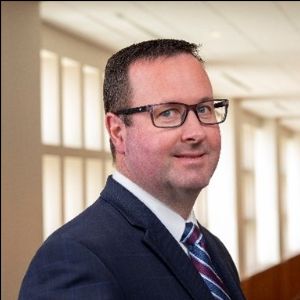
Jason Grant
Grant is the W.G. Wysor Professor of Agriculture and Director of the Center for Agricultural Trade at Virginia Tech. Dr. Grant joined the Department of Agricultural and Applied Economics in 2007, after completing a Ph.D. in agricultural economics from Purdue University. Dr. Grant’s research investigates key trends in global markets shaping U.S. commodity production and export, including the impacts of trade disputes, retaliatory trade actions, SPS issues, Codex food safety standards, competitive regionalism, and extreme climate events. In 2021, his work on the U.S.-China trade dispute was recognized by the American Agricultural and Applied Economics Association (AAEA) for the profession’s outstanding Choices article award for outreach contribution. In 2020, he was the recipient of USDA’s Bruce Gardner Award for outstanding contributions by an outside Economist shaping U.S. government programs and policies and has previously been the recipient of the AAEA’s Honorable Mention award for Outstanding Journal Article and the European Agricultural Economics Association’s Quality of Policy Contribution Award for his work on international trade agreements.

Yacob Zereyesus
Zereyesus is an economist in the International Trade and Development Branch of the Market and Trade Economics Division at the Economic Research Service (ERS). He currently leads USDA/ERS’s International Food Security Assessment (IFSA) work focusing on low- and middle-income countries. His research interests cover topics related to food security, including farm production and income, and the dynamics of labor allocations and employment conditions in farm households; the vulnerability, resilience, and adaptation of farm households and operations to shocks; and the consumption of nutritious and safe food.
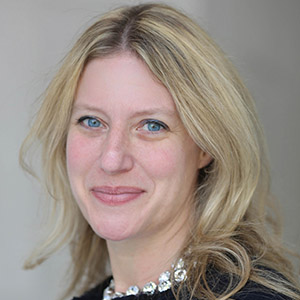
Katrin Kuhlmann
Kuhlmann is a Visiting Professor of Law at Georgetown University Law Center, where she is also the Faculty Co-Director of the Center on Inclusive Trade and Development. She teaches courses in law, development, and international trade. Her work and research focus on trade and development, regional trade agreements (with a particular focus on Africa), trade and gender, inclusive agricultural trade, comparative economic law, and the interdisciplinary connections between law and development. Kuhlmann is the President and Founder of New Markets Lab (NML), a non-profit law and development innovation lab. She is also a Senior Associate with the Global Food Security Program of the Center for Strategic and International Studies. Earlier in her career, she served as a trade negotiator at USTR and a lawyer at two international law firms, and she has held senior positions with several non-profit organizations and think tanks.

Ellen Frost
Frost is Senior Advisor and Fellow at the Washington office of the East West Center, a non-profit organization established by Congress to promote better understanding among the people and nations of the United States, Asia, and the Pacific through cooperative research, leadership training, and dialogue. Dr. Frost’s prior jobs included Counselor to the U.S. Trade Representative (1993-95), Deputy Assistant of Defense for International Technology and Economic Affairs (1977-81), various positions in the U.S. Treasury Department (1974-77), and Legislative Assistant in the U.S. Senate (1972-74). During the 1980s she worked for two multinational corporations. From 1995 to 2012 Frost was a visiting fellow at the Peterson Institute for International Economics. She is the author of Asia’s New Regionalism (2008), Transatlantic Trade: A Strategic Agenda (1997), and For Richer, For Richer, For Poorer: The New U.S.-Japan Relationship (1987). She is a member of the Council on Foreign Relations and the International Institute of Strategic Studies. She received her Ph.D. from the Department of Government at Harvard University.
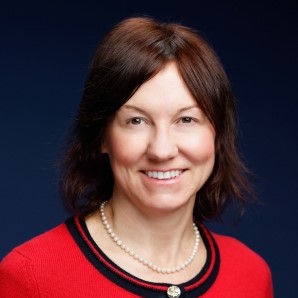
Christine McDaniel
McDaniel is a Senior Research Fellow at the Mercatus Center and a non-resident fellow at the Clayton Yeutter Institute of International Trade and Finance at the University of Nebraska-Lincoln. Her research focuses on international trade, globalization, and intellectual property rights. McDaniel previously worked at Sidley Austin, LLP, a global law firm, where she was a senior economist. She has held several positions in the U.S. government, including Deputy Assistant Secretary at the Treasury Department and senior trade economist in the White House Council of Economic Advisers, and has worked in the economic offices of the U.S. Department of Commerce, U.S. Trade Representative, and U.S. International Trade Commission. Christine spent three years in Australia as deputy chief economist in Australia’s patent office. She has published in the areas of international trade, intellectual property, and empirical trade analysis and modeling. Christine has written for the Wall Street Journal, Politico, The Hill, and Forbes, among others, and her media appearances include CNBC, CBC, BBC, Bloomberg, Fox, and MSNBC. She holds a Ph.D. in Economics from the University of Colorado and received her B.A. in Economics and Japanese Studies from the University of Illinois at Urbana-Champaign.
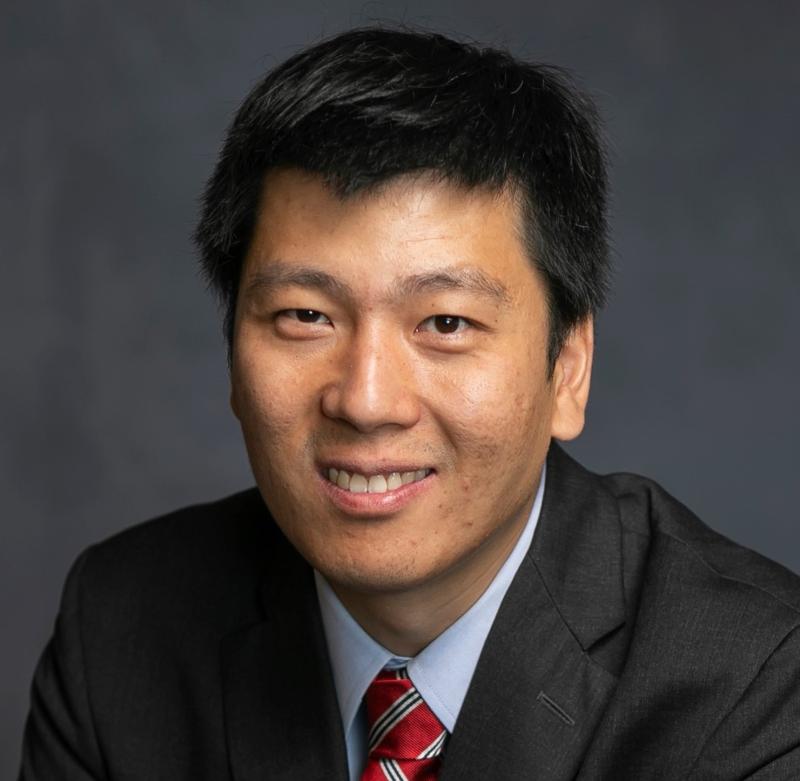
Wendong Zhang
Zhang just joined Cornell University as an Assistant Professor and Extension Economist in the Dyson School of Applied Economics and Management. He is also an Associate Professor (on leave 2022-2023) in the Department of Economics at Iowa State University, where he is a Faculty Affiliate at the Center for Agricultural and Rural Development (CARD) and co-founder of the ISU China Ag Center. Dr. Zhang has extensive research and public engagement experience on US-China agricultural trade, the U.S.-China Phase One Trade Deal, as well as the global trade implications of critical Chinese agricultural market developments such as China’s African Swine Fever, China’s Corn and Ethanol Policy Reform, and the Regional Comprehensive Economic Partnership (RCEP).

Jill O'Donnell
O’Donnell is the Haggart-Work Director of the Clayton Yeutter Institute of International Trade and Finance and a professor of practice at the University of Nebraska-Lincoln. She is also the creator and host of "Trade Matters," a podcast of the Yeutter Institute. Jill leads the effort to build and grow the Yeutter Institute across its mission areas of education, research, and public engagement. Her prior experience in the international relations and U.S. foreign policy arena spans Capitol Hill, international organizations, research entities, and the private sector. She is a graduate of Washington and Lee University and the Johns Hopkins University School of Advanced International Studies (SAIS).
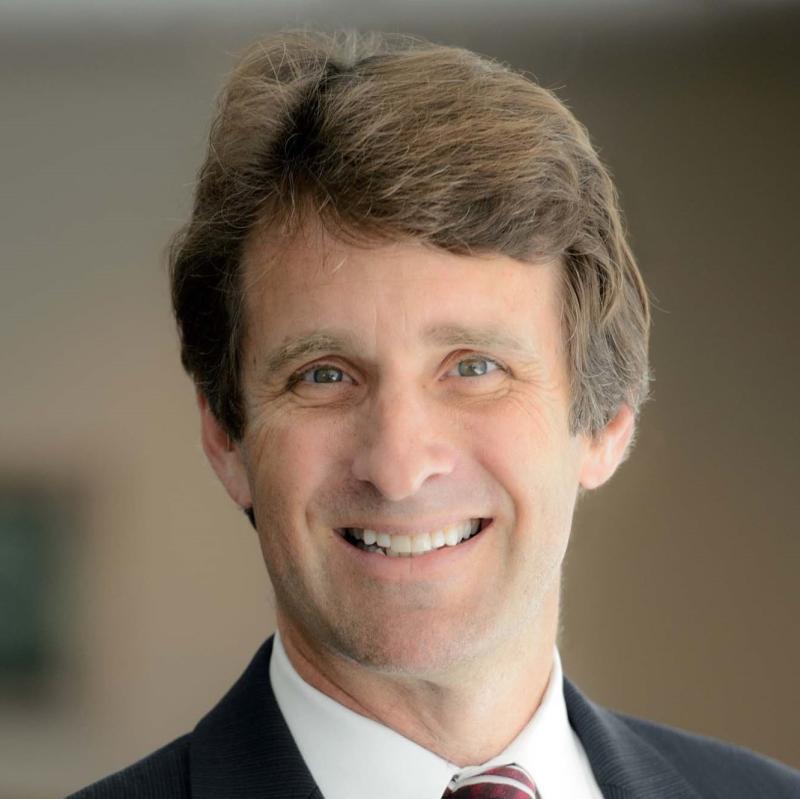
Edward Alden
Alden is the Ross Distinguished Visiting Professor at Western Washington University in Bellingham, WA, and the Bernard L. Schwartz Senior Fellow at the Council on Foreign Relations. He is the author of Failure to Adjust: How Americans Got Left Behind in the Global Economy (2016). His first book, The Closing of the American Border: Terrorism, Immigration, and Security Since 9/11 (2008), was a finalist for the Lukas Book Prize for narrative nonfiction. He has directed several CFR-sponsored independent task forces, including the 2018 report The Work Ahead: Machines, Skills, and U.S. Leadership in the Twenty-First Century and the 2011 report U.S. Trade Policy. He was previously Washington bureau chief for the Financial Times and is currently a columnist for Foreign Policy.